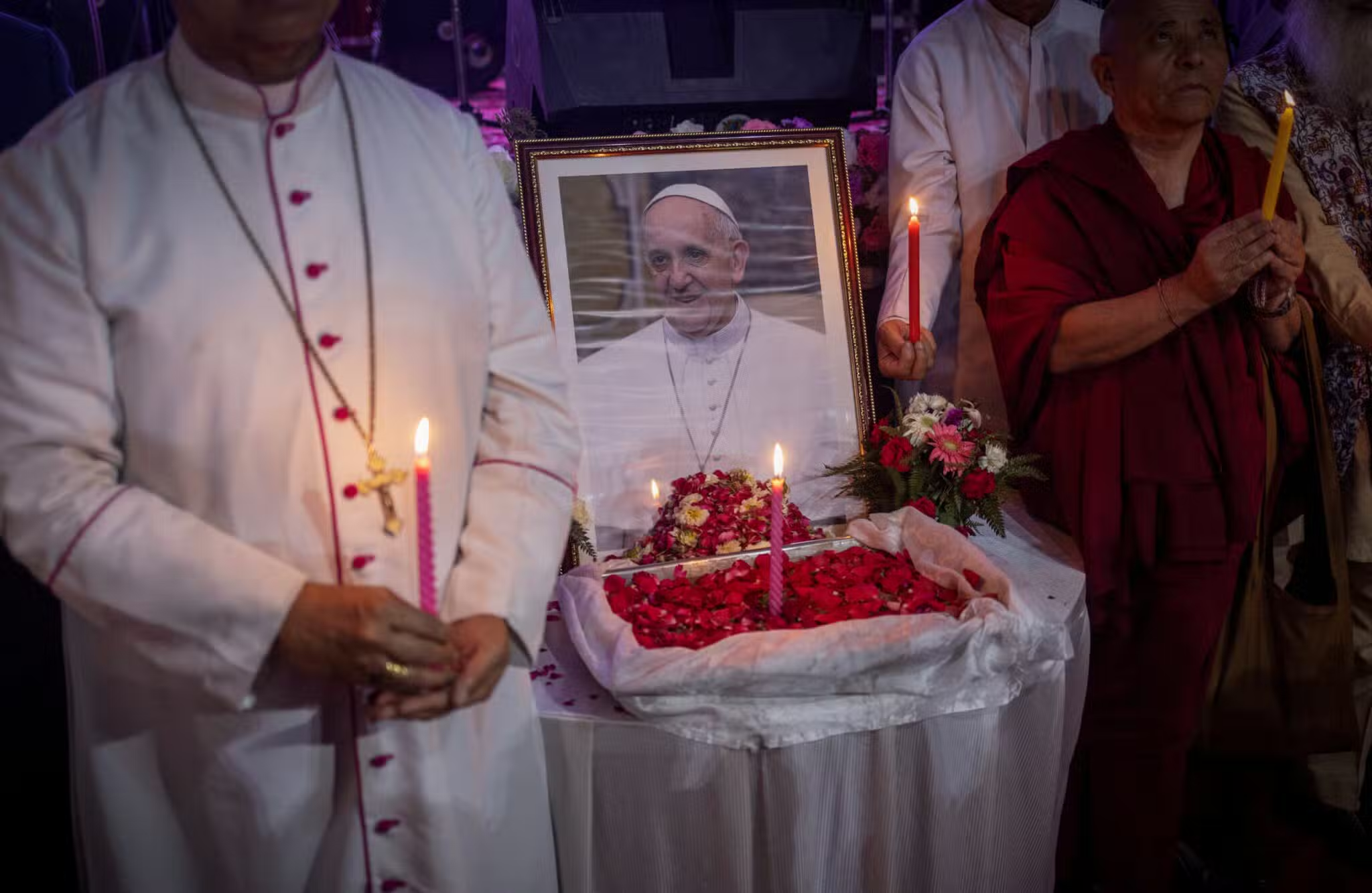When we celebrate Easter, we get a lot of help: from liturgical rite, music, art and spring growth. The greening and warming of nature externalize our inner state. As the season blooms with new life, we rejoice in our risen Lord, who has conquered death. That all happens because we know how the story ends.
Instead, consider Joanna. Only Luke records her name (24: 1-13). She is mentioned earlier as “the wife of Herod’s steward Chuza,” one of the women who accompanied the disciples and “provided for them out of their resources” (8:3, NRSV).
Joanna and her companions approach Jesus’ tomb with spices to embalm the body and cover the stench. The women must have slept little the night before, with haunting visions of his brutal crucifixion.
What appears from a distance like a stone before the tomb is a gaping black hole. When she sees “two men in dazzling clothes,” Joanna and the other women “bowed their faces to the ground.”
That’s not the posture we usually associate with Easter. We think of upraised arms and jubilant “Alleluias.” This tale blows our cozy associations with baskets, bunnies and pastel dresses.
Even worse is the skepticism Joanna encounters. She probably anticipated an empathetic hearing when she told the apostles what she’d seen and heard. Instead, her story “seemed to them an idle tale” (11), which they do not believe. The Greek word is even stronger: Leros refers to the wild talk of a feverish person in delirium.
Strength to Speak the Truth
But like women today who insist on the validity of their experience despite dismissals, Joanna sticks to her story. What gives her the inner strength to speak her truth despite cavalier denials? She must have carried in her heart the words, “He is not here, but has risen” (5).
Like generations who followed, Joanna knew that a voice buoyant with song had robbed death of its sting. Nothing would be the same; tragedy no longer had the final word.
Japanese-American poet Janice Mirikitani believes the woman at the tomb brings hope to everyone told to keep quiet, not reveal family secrets, not disrupt complacent silence: Joanna, “with the throat full of grace/tells us truth….Her words breaking like light.”
The angels’ words to Joanna translate for us today. “Why do you look for the living among the dead?” might mean, why cling to sterile routines, self-blame, dead-end jobs or relationships, destructive patterns, simply because they are secure, familiar or expected? Can’t you trust the God who has cared for you assiduously to bring new life and growth? Why watch TV when a beautiful world beckons?
Joanna and her friends planned to anoint Christ’s body. But their jars of spices are left in the dust, just as the Samaritan woman left her water jug behind. Author Marie-Eloise Rosenblatt thinks these abandoned vessels symbolize the transformation of women’s status. No longer will they merely do repetitive physical work. They are called to be witnesses of Jesus’ resurrection.
Memories Sustain
In fact, women’s memories will sustain the community of faith. The angel directs Joanna: “Remember.” At first we think of ordinary terms: Remember Sue’s birthday and the oil change. But here the word has larger connotations: “Remember all Jesus told you of his crucifixion and resurrection.”
Can we too remember all God’s graces in the past, strung through our lives like pearls? Even if we haven’t experienced luxury, we have known the fragrance of a meal, the touch of a loved one, the unexpected graces that retrieve work from drudgery and rescue our days from numb routine.
Greedy for more, we forget too easily how much we have already received. Joanna reminds us: Things may look puzzling or even terrifying now. But memory recalls the beauty, the meaning, the promise that we can move forward with trust because we have known goodness before. God continues to be as faithful as God has always been.
We may be sad but we cannot be hopeless. No matter what black hole we peer into, we can remember that the stone has forever been rolled away. The details of Joanna’s experience may not parallel ours, but her story signals clearly that the same resurrection awaits us all.
Next Month: Joseph of Arimathea








